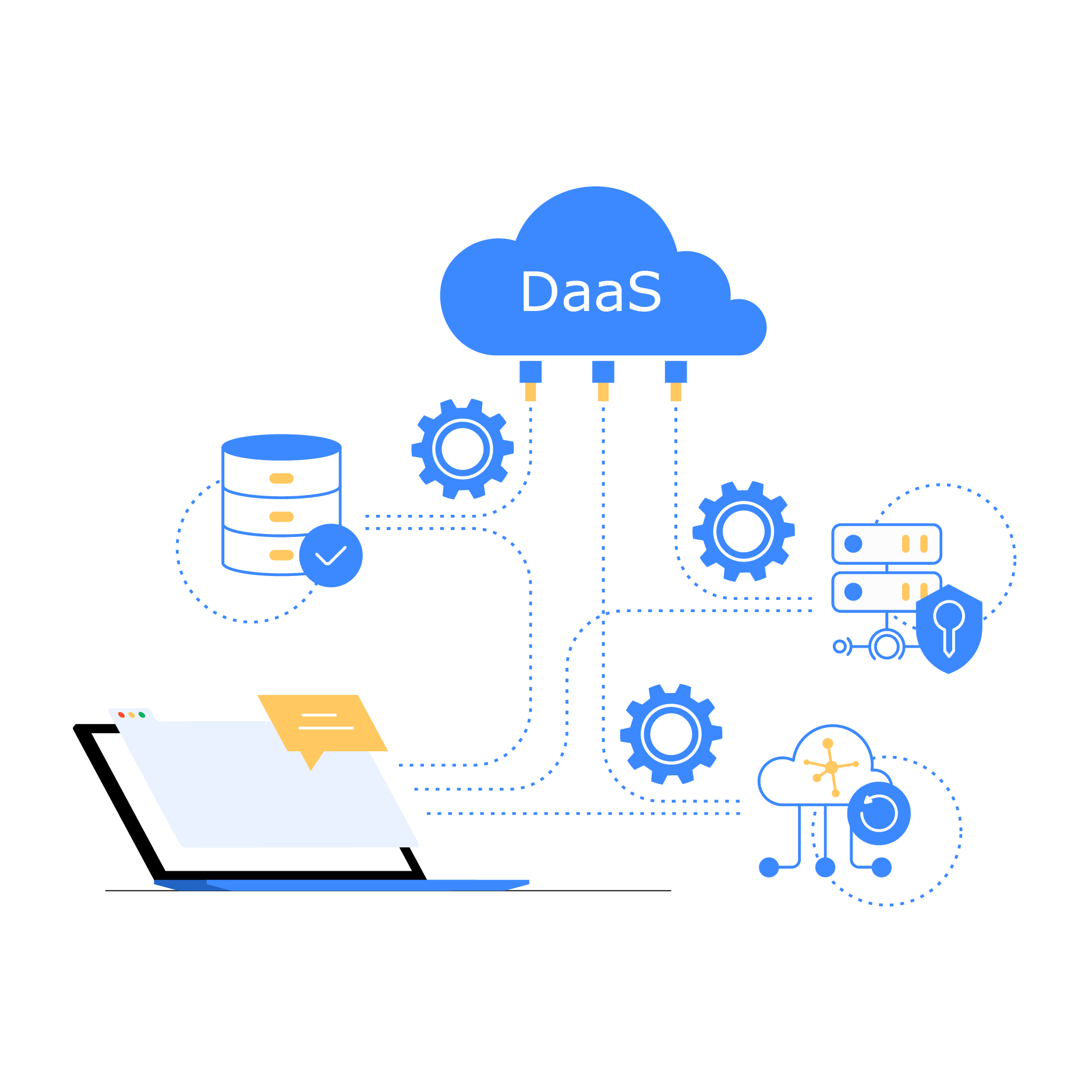According to BMC, nearly 5,000 new software-as-a-service businesses are being started every year. The cloud has been around for some time and you may know it as it relates to storing files, organizing teams, and connecting technologies.
The cloud is an essential component of SaaS businesses.
What you don’t hear about is the trend of starting a data company based in the cloud and what that market is doing to drive the tech industry.
Considering a lot of companies use our residential proxies for data acquisition, we felt that it would be beneficial to provide an introduction to data as a service and how you can look into the market yourself for potential benefits.
What Is Data As A Service?
Data as a service is a strategy that is used to store data and then recall it for clients. It’s based on analytics and management processes that make the information readily available for a price, usually modeled on a recurring subscription.
A well-known example of a data as a service business model would be the website Crunchbase.
Why?
Because Crunchbase offers data in the form of venture capital information to its customers for a price. They have access to investor data by scraping and collecting it from the corporations themselves.
Once this data is structured it can then be recalled from the backend table and offered on the front end to clients that want to know more about companies and the people who are investing in them. Brands use this information to appeal to principal investors.
Benefits Of A DaaS Model
This business model allows entrepreneurs the ability to give corporations what they need in segmented amounts for a value proposition. Now data can be monetized as an asset on its own whereas a software-as-a-service business relies on purely availing tech to clients.
Let’s look at other benefits that data as a service offers.
Financial Flexibility
Companies can pay for data in segments instead of having to hire programmers, data scientists, or licensing the software to procure the data for themselves. This allows startups to control the cost that they’re willing to pay to get started.
In turn, data companies can now offer their intelligence as an asset for an increase in MMR for data they were not using.
Instant Gratification
Traditionally it could take months to scrape, assess, and structure data so that it can be used for a use case that a company requires. With a DaaS model, entities can now take advantage of instant data when they need it most.
It gives startups the ability to MVP their product faster than before and makes setting up sales teams a lot easier without all the resource requirements.
Challenges Of A DaaS Model
The first thing to understand is that in order to aggregate data from the Internet you have to begin with web scraping or manual collection. Obviously, if you try to manually procure data it can take forever and is subject to human error.
Another possibility you should consider is whether you do the web scraping in-house or outsource it. Let’s take a look at these two options and see which one best fits your business model.
Data Relevance
In every vertical, data must be relevant to the time it is given. That involves data companies being able to freshen their data by scraping their sources and updating their tables so that clients receive fresh information.
For those purchasing data, it is important to make sure that it has not become stale and that the company regularly updates its data pool.
Privacy Compliance
Data compliance laws are becoming stricter as time goes on which can be seen in recent European Union legislation. If a company is offering data that was acquired through illegitimate means it could jeopardize its client’s legal standing when they use the information.
As a buyer, it is important to make sure that the data as a service company is complying with all local laws that you must follow so that you do not become liable.
How Proxies Are Utilized In DaaS
All data as a service businesses must first accumulate information that is relevant to the niche they are trying to market to. Residential and mobile proxies are necessary utilities that power cloud-based web scraping systems.
They’re also what is used with in-house developed Python scripts that are often leveraged to acquire data across multiple Web 2.0 platforms.
Because of this, it is imperative that a DaaS business leverage proxies.
Residential proxies are special because they are sourced from individual house Wi-Fi routers located in over 150 countries. Because the IP addresses are signed by real internet service providers, you can scrape data without being blocked by platforms.
For mobile applications like TikTok, it’s advantageous to utilize mobile proxies that are sourced from cellular networks. That way, when you are making requests from the application it thinks you are coming from a mobile connection.
If you are needing data for your data as a service business you should consider the proxy pool size of the company you are sourcing your IP addresses from.
Considering you need a lot of data to go into business it demands that you have a lot of IP addresses that can rotate periodically when requesting information from platforms. At ProxyEmpire we make sure each IP address is clean for your usability.
Conclusion
DaaS is here to stay and has a promising future of growth. It allows companies to segment their data and get it when they need it without waiting. ProxyEmpire provides residential and mobile proxies for DaaS-based companies.
If you have any questions as it relates to proxies, data acquisition, or data as a service feel free to reach out to our team in the live chat.




















